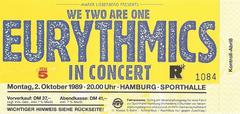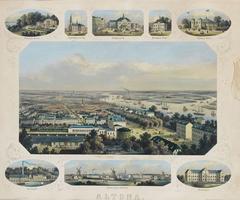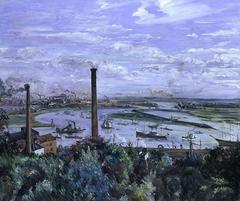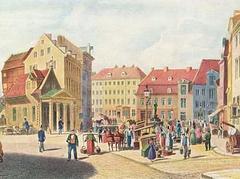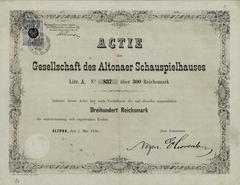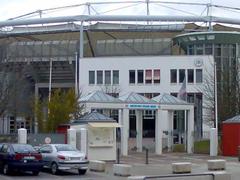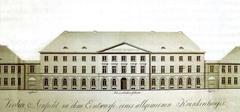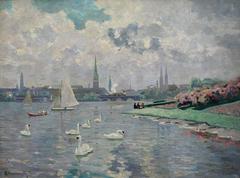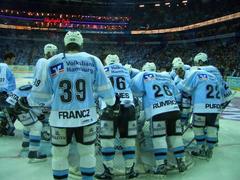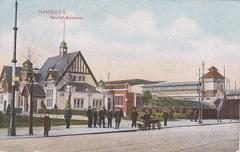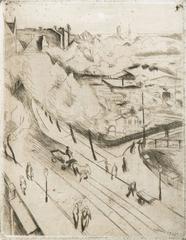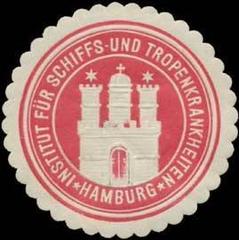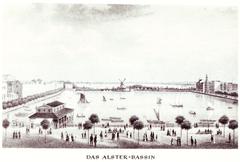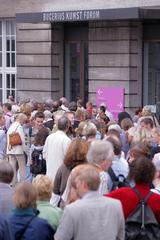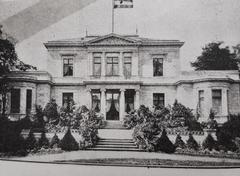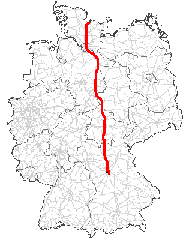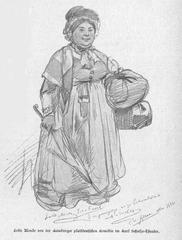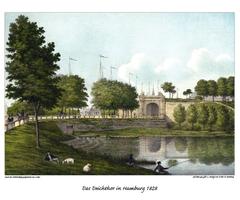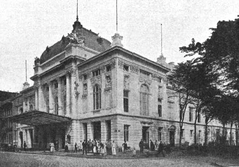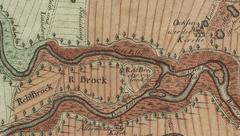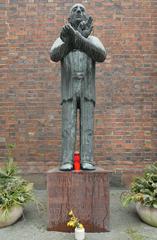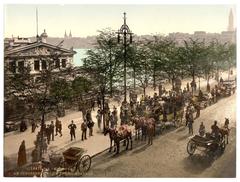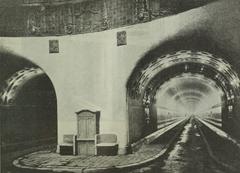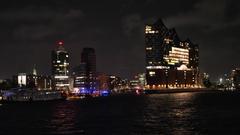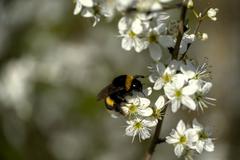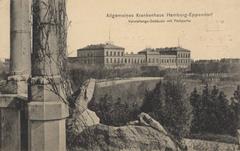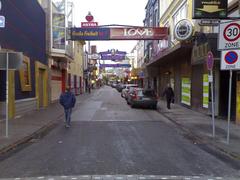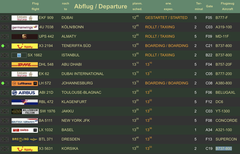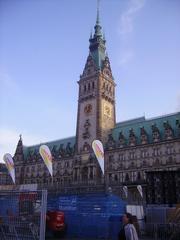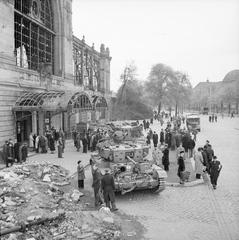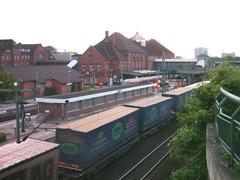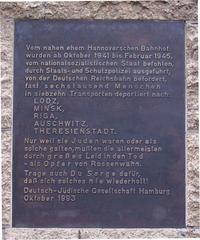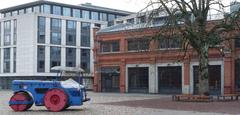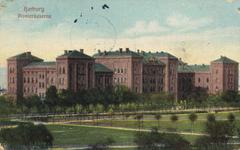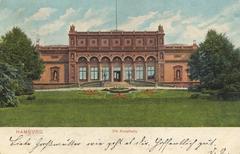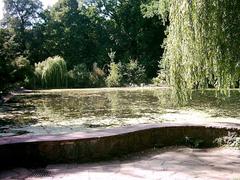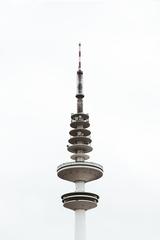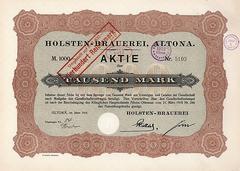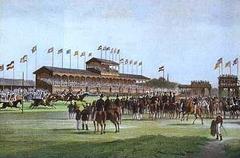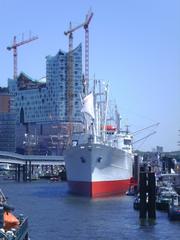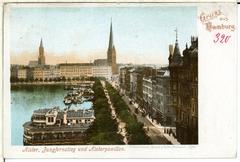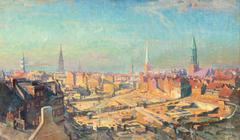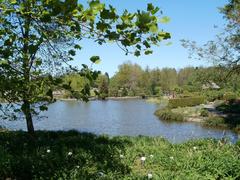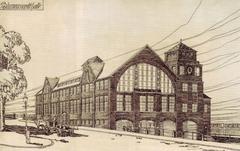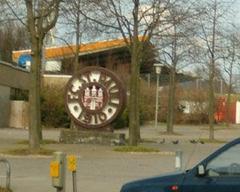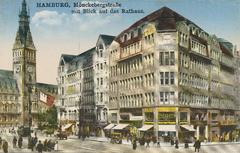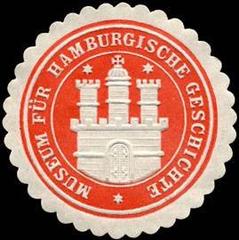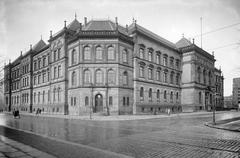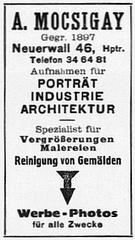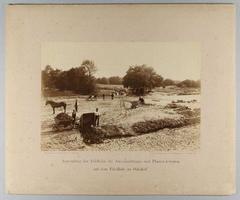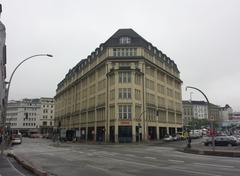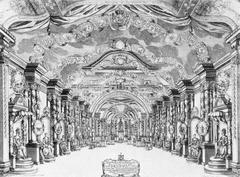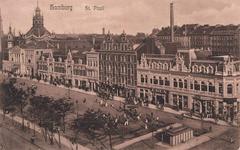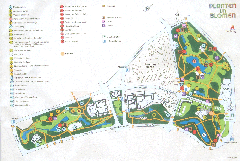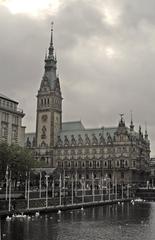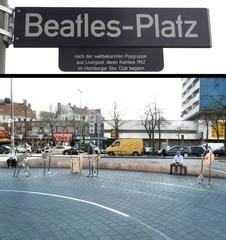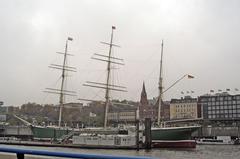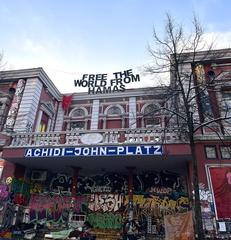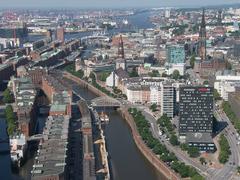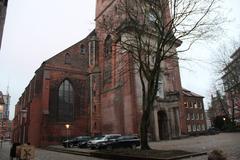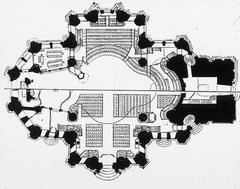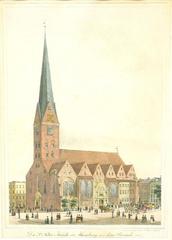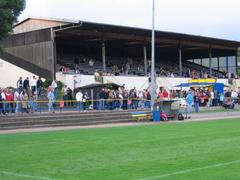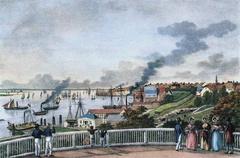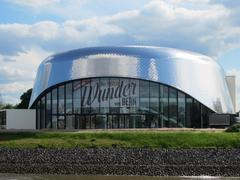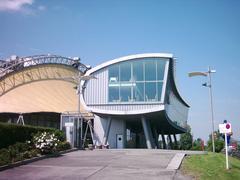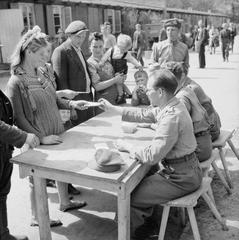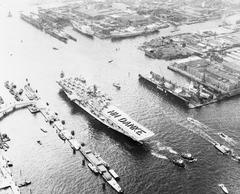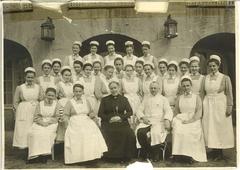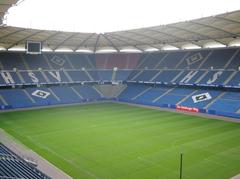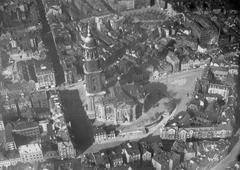
Fliegende Bauten Hamburg: Visiting Hours, Tickets, and Historical Significance
Date: 04/07/2025
Introduction
Fliegende Bauten Hamburg is a cultural beacon blending innovative architecture with dynamic performing arts. This comprehensive guide details the venue’s history, cultural impact, unique design, visiting hours, ticketing information, and essential tips for an optimal visitor experience.
Historical Overview
Origins and Evolution
“Fliegende Bauten” (Flying Structures) refers to the modular, mobile tent architecture that has defined the venue since its establishment in the late 20th century. Drawing inspiration from the traditions of European circus and cabaret, Fliegende Bauten found a permanent home in creative districts like Schanzenviertel and Kampnagel. Its flexible structures, designed for rapid assembly and relocation, have hosted a rich spectrum of performances—ranging from avant-garde theater and contemporary circus to live music—reflecting Hamburg’s cosmopolitan spirit (Hamburg Travel – Culture & Music; sebastiano.de).
Architectural and Artistic Innovation
The signature white, high-tensile tents accommodate up to 500 guests and are equipped with advanced lighting and sound. Their modularity supports a diverse array of productions, from intimate solo acts to large-scale events. The playful aesthetic and visual identity—often enhanced by local artists’ hand-painted banners—mirror the venue’s commitment to creativity and experimentation (TÜV NORD; hamburg.de; sebastiano.de).
Cultural Significance
Fliegende Bauten fills a unique niche in Hamburg’s arts scene, providing an alternative to grand institutions like the Elbphilharmonie. Its programming bridges traditional and contemporary art forms, nurturing new talent and offering a platform for innovative productions. The venue is renowned for its annual cabaret and variety shows, which revitalize Hamburg’s early 20th-century entertainment heritage (Hamburg Travel – Theater & Stage Arts).
Community engagement is a core value, with collaborations involving schools, local organizations, and major cultural festivals such as the Hamburg Theater Festival and altonale (Hamburg Travel – Events Calendar). By fostering cultural tourism and providing employment in the creative sector, Fliegende Bauten strengthens Hamburg’s creative economy (Explore City – Hamburg).
Venue Design and Features
The Concept of “Fliegende Bauten”
Under § 66 of the Hamburg Building Code, “Fliegende Bauten” are temporary structures designed for repeated use at different locations without permanent attachment. This flexibility allows for dynamic programming and rapid adaptation to event needs (hamburg.de).
Structural Elements
The venue features Italian-imported, circus-style tents made from high-tensile fabric over steel or aluminum frames. Interior layouts are open-span for unobstructed sightlines and acoustics, with reinforced flooring and state-of-the-art technical infrastructure (TÜV NORD). Ancillary spaces—such as foyers and technical booths—are seamlessly integrated.
Artistic Identity
Fliegende Bauten’s visual language is shaped by its avant-garde roots. Exteriors are often decorated with vibrant, locally produced artwork. The foyer tent, with a bar and café, serves as a lively social hub, fostering direct interaction between artists and audiences (sebastiano.de).
Atmosphere and Visitor Experience
The venue’s temporary nature cultivates a sense of excitement and impermanence, ensuring each visit is distinctive. Events range from experimental theater and contemporary dance to cabaret and live music. Signature productions such as “ENTFÜHRT,” “HELDEN haarscharf am Leben vorbei,” and “BÄNG BÄNG” have cemented its reputation for artistic innovation (sebastiano.de). The informal, inclusive atmosphere attracts a mix of locals and tourists, making each gathering vibrant and welcoming.
Accessibility and Practical Information
Location & Transport
The venue is centrally located—most recently at Glacischaussee 4, opposite Heiligengeistfeld, near the Reeperbahn and Hamburger Messe. It is easily accessed via the St. Pauli U-Bahn station and nearby parking (hamburg-magazin.net).
Physical Accessibility
Entrances are at ground level, with ramps and accessible restrooms. Staff are trained to assist visitors with special needs, and guide dogs are welcome.
Safety
As a temporary structure, Fliegende Bauten adheres to strict safety standards, with regular inspections and certifications by TÜV NORD (TÜV NORD).
Visiting Hours & Tickets
- Current Status: As of June 2025, Fliegende Bauten’s tent operations remain suspended since 2014 due to non-renewal of the lease. There are currently no visiting hours or ticket sales. Efforts for reopening in a permanent venue are ongoing but without a confirmed date (de.wikipedia.org; termine.de).
- Ticketing (Historic): Tickets, when available, ranged from €15 for small productions to €50+ for major shows, with discounts for students, seniors, and groups. The “Geldermann-Exklusiv-Ticket” offered perks like a welcome drink and seat reservation (hamburg-magazin.net).
Facilities & Amenities
The foyer tent houses a bar/café with refreshments, cloakroom, and merchandise. Outdoor seating and a beer garden are available during summer. The venue is family-friendly, with occasional children’s performances and workshops.
Visitor Tips
- Check Official Sources: For updates on reopening or new locations, monitor the official website and event calendars.
- Explore Alternatives: Other cultural venues in Hamburg, such as Schmidt Theater and Thalia Theater, offer diverse programming (de.wikipedia.org).
- Accessibility: Most Hamburg theaters are barrier-free.
Annual and Seasonal Programming
While the traditional tent is currently inactive, Fliegende Bauten’s legacy includes:
- WinterVarieté: A highlight blending acrobatics, comedy, and music.
- Workshops: Circus skills, theater, and technical seminars, often in collaboration with DSB (DSB Event Calendar).
- Community Events: Outreach programs and educational initiatives for schools and youth groups.
Community Engagement & Industry Relations
Fliegende Bauten has fostered close ties with local schools, universities, and cultural institutions, supporting educational projects and offering internships. It has also been a hub for industry seminars on temporary structure safety and event management (DSB Seminar Details).
FAQs
Q: Are Fliegende Bauten Hamburg currently open?
A: No, since June 2014 public events have ceased and the tent has been dismantled.
Q: Are there plans for reopening?
A: Efforts are ongoing for a fixed new venue, but no date has been set.
Q: Were the venues accessible?
A: Yes, with barrier-free entrances and seating.
Q: How could tickets be purchased?
A: Historically, tickets were available online and at box offices. No current sales exist.
Q: What are good alternatives in Hamburg?
A: Schmidt Theater, Hansa-Theater, and Thalia Theater offer varied cultural programming.
Visuals and Media
High-quality images and videos of the iconic tent, foyer, and past performances—accompanied by descriptive alt text like “Fliegende Bauten Hamburg Zeltarchitektur” and “Besucher bei Fliegende Bauten Veranstaltung”—enhance the digital experience.
Internal and External Links
Summary and Final Tips
Despite the suspension of its tented operations, Fliegende Bauten Hamburg remains a symbol of artistic innovation and community engagement. Its pioneering approach to mobile architecture and programming has influenced Hamburg’s cultural landscape and continues to inspire discussions about revival (de.wikipedia.org; hamburg-magazin.net). Stay informed via official sites and consider other theaters for live cultural experiences. For updates and event notifications, download the Audiala app and connect on social media.
List of Reliable Sources
- Hamburg Travel – Culture & Music
- sebastiano.de
- DSB Event Calendar
- hamburg-magazin.net
- hamburg.de
- TÜV NORD
- de.wikipedia.org

